History master's student Jon Weller wins SSHRC video prize
2016 SSHRC Storytellers video
2016 SSHRC Storytellers video
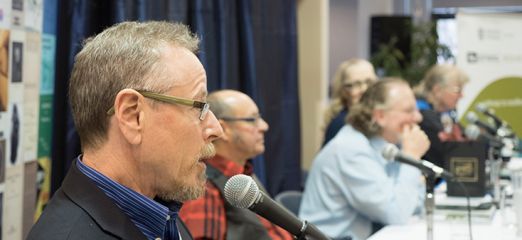
An international conference, led by the new UVic Chair in Transgender Studies Aaron Devor, brought together some of the world's top researchers, opinion leaders, transgender community activists and students this month to explore the history of transgender activism and crucial issues which impact the lives of trans and gender-nonconforming people.
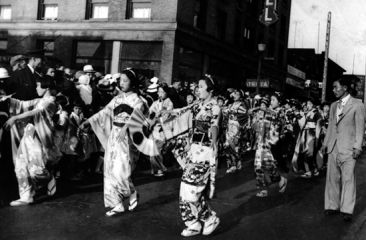
The role played by the City of Vancouver in the dispossession of Japanese Canadians during the 1940s is now more clearly drawn, thanks to exhaustive work over the past two years by one of the biggest research projects in the field of humanities in Canada.
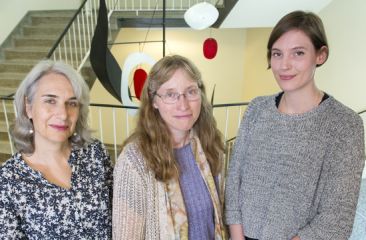
What will the Holocaust mean to new generations in the 21st century? This summer, the world saw shocking film footage of Edward VIII in 1933 teaching the Nazi salute to the Queen as a young girl in the same year Hitler came to power in Germany, with subsequent international media coverage putting pressure on the royal family to open its archives and also raising important questions about a real risk of losing the educational legacies of the 1940s. As home to the I-witness Holocaust Field School (the first of its kind for undergraduate students at a Canadian university) and the UVic Holocaust Archive, UVic hosted a global gathering early this month to explore Holocaust education as a means to tackle contemporary issues of hatred, racism, antisemitism, islamophobia, xenophobia, ethnic conflict and genocide.
History Refugee Committee to sponsor family from Syria On Sept. 15, the week after President Jamie Cassels wrote to the campus community about the need for a university response to the international refugee crisis, nine colleagues in UVic’s history department decided to proceed in sponsoring a family from Syria.
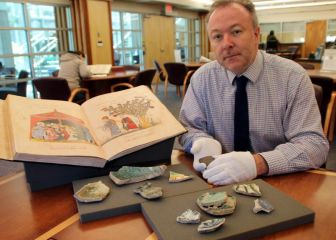
Protecting and learning from Middle Eastern antiquities When news broke in August that Syrian archaeologist Khaleed al-Asaad had been killed by ISIS for trying to protect his country’s cultural legacy from destruction and looting, it sent a chill through the heart of Art History and Visual Studies professor Marcus Milwright. An archaeologist and professor of Islamic art and architecture, Milwright has worked extensively in Syria—including the ancient city of Palmyra, the UNESCO World Heritage Site for which Khaleed al-Asaad was the head of antiquities.
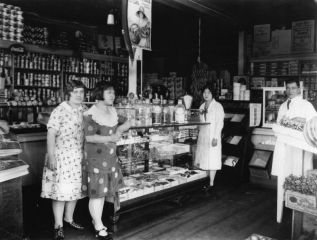
A multi-partner, seven-year, $5.5-million research project, Landscapes of Injustice, announced by UVic on Aug. 27 will culminate in an interactive travelling museum exhibition to tell the story of dispossession of Japanese Canadians.
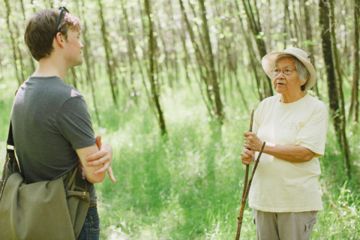
The only ethnohistory field school in Canada to offer a firsthand learning opportunity involving traditional knowledges of oral history and research of historical documents has been immersing graduate students every second spring since 1998 deep within the Stó:lō community in BC.
A team of researchers—part of the federally funded, seven-year, multi-partner research project Landscapes of Injustice led by the University of Victoria—has uncovered a historical trail within municipal and federal archives pointing to the City of V…
During the Second World War, Canada sold the homes, businesses, farms and possessions of thousands of interned Canadians. The following University of Victoria faculty member is available to media to comment on the forced dispossession of Japanese Ca…
Just in time for Hallowe'en, the Maker Lab in the Humanities at the University of Victoria launched its first Kit for Cultural History, which reinvents a skull stick-pin from the 1860s. The kit is a tangible example of how the Maker Lab combines cul…
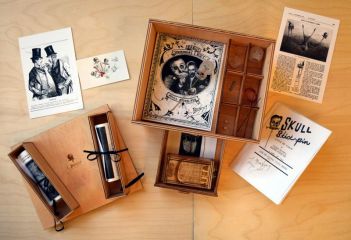
Just in time for Halloween, the Humanities Maker at UVic launched its first Kit for Cultural History, which reinvents a skull stick-pin from the 1860s. The kit is a tangible example of how the Maker Lab combines cultural research with digital fabrication and also of today's thriving maker movement which involves DIY approaches. Unveiled at Rutgers University in New Jersey, the kit features the cravat pin introduced by French engineer Gustave Trouv&e#180; at an 1867 exhibition in Paris and now housed at the Victoria and Albert Museum in London, UK.
What will the Holocaust mean for future generations? UVic will host a global gathering Sept. 1 to 3 to explore Holocaust education and how it can be used as a means to tackle contemporary issues of multi-cultural human rights education.
University of Victoria experts are available to discuss the ruling by the US Supreme Court in a landmark case on marriage equality and the constitutionality of state bans on same-sex marriage.
Twelve footprints were discovered by two UVic researchers, in April on Calvert Island on BC’s central coast, and preliminary findings indicate these footprints might be 13,200 years old.
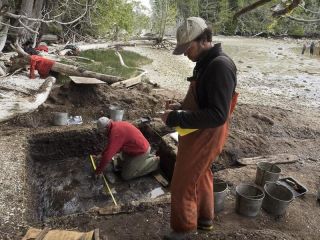
Family gatherings around a fire pit—an ancient custom that’s still with us today—may have been practiced as long as 13,000 years ago along BC's central coast. Footprints from what appear to be a man, woman and child circling a hearth were found last month below the tideline.